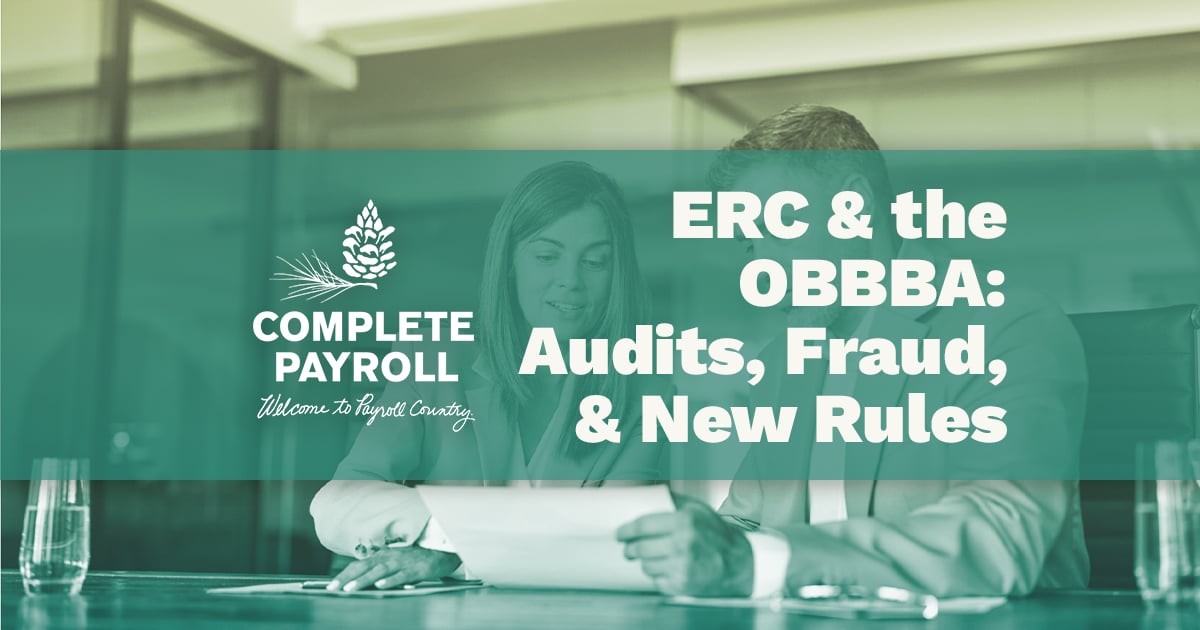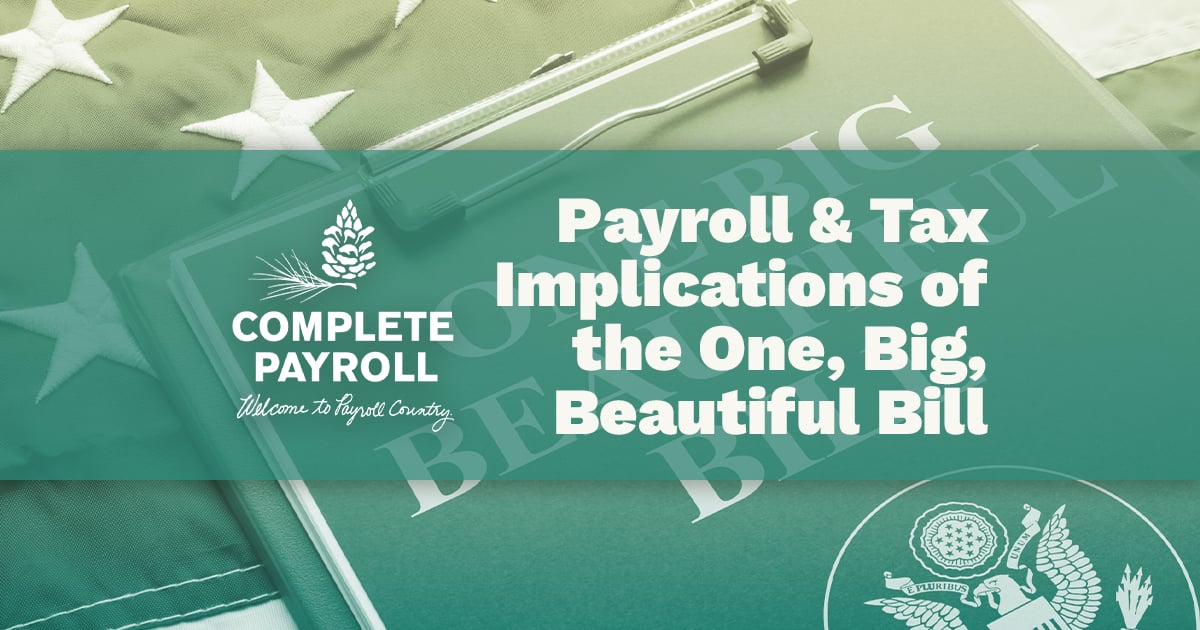2024 COVID-19 Fraud Task Force Report: ERC & PPP Updates
Written by Rick Fish, Jr., C.P.P.

Due to the high number of fraudulent tax claims surrounding COVID-19 benefit relief programs, the U.S. Department of Justice (DOJ) has implemented a COVID-19 Fraud Enforcement Task Force (CFETF) to combat these fraud schemes. This task force is responsible for investigating false claims and bringing forth criminal charges against fraudsters.
The COVID-19 Fraud Enforcement Task Force has been extremely successful in investigating these fraud schemes and has held investigations involving more than 2.9 billion in fraudulent claims between 2020 and 2023. The CFETF task force is still actively pursuing fraudulent claims relating to COVID-19 relief programs.
Businesses should be aware and informed to ensure they’re compliant with the requirements for benefits received from COVID-19 relief programs.
COVID-19 Fraud Enforcement Task Force (CFETF)
The COVID-19 Fraud Enforcement Task Force (CFETF) is tasked with detecting and disrupting current and future fraudulent COVID-19 relief claims. Their job is to investigate and prosecute all responsible offenders and recover stolen relief funds. In addition, they’re working hard to reduce and prevent future fraud surrounding receiving COVID-19 relief funds.
Essentially, this task force is raising awareness of COVID-19 relief program fraud and serves to deter and execute legal action against those individuals exploiting this government assistant relief program for their own personal financial gain.
ERC and COVID-19 Tax Credit Fraud
There are two main COVID-19 tax credit programs that fraudsters are taking advantage of and manipulating: the Employee Retention Tax Credit and the Payroll Protection Program.
What is the Employee Retention Credit (ERC)?
One of the main issues is fraud around the Employee Retention Tax Credit. The Employee Retention Credit (ERC) is a government-led tax credit to essentially compensate and support businesses that retained their employees during the COVID-19 pandemic.
Businesses had the opportunity to claim the Employee Retention Tax Credit and receive a tax credit for each employee that they held onto during certain qualifying quarters of the pandemic and to whom they paid qualifying wages. Businesses also could have claimed this credit if they experienced supply chain issues, a decline in business revenue, or had to shut down partial or full business operations due to a government order.
Unfortunately, many businesses claimed this tax credit fraudulently by claiming it when they weren’t eligible. Others claimed either too many employees or too many quarters, resulting in a much larger tax credit than they were qualified for. Now, the government is working hard to investigate and expose those involved with employee retention credit fraud.
What is the Paycheck Protection Program (PPP) Loan Fraud?
The Paycheck Protection Program (PPP) is a Small Business Administration (SBA) loan that helped businesses keep their employees during the COVID-19 pandemic. Small businesses could use this loan to cover up to eight weeks of payroll costs and benefits. In addition to covering payroll, the funds from these loans were also eligible to pay interest on mortgages, rent, and utilities.
While this loan was designed to help businesses meet payroll and keep their workforce despite the financial hardships brought on by the pandemic, unfortunately, this relief was often claimed incorrectly as well. Thousands of people took advantage of the relief loan program by submitting fraudulent applications for workers who didn't exist. Because of this, there are a massive number of PPP loan fraud cases the COVID-19 Fraud Enforcement Task Force is actively seeking to expose.
CFETF Tax Fraud Enforcement COVID-19
Due to the massive scale of these COVID-19 relief fraud schemes, the CFETF has been working to investigate and convict all unlawful parties involved in these cases, with much success. Over 3,500 defendants have been charged with criminal offenses by the CFETF for losses exceeding $2 billion. Additionally, there have been more than 400 civil settlements and judgments valued at over $100 million.
The IRS Criminal Investigation (CI) continues to investigate fraud, focusing primarily on ERC fraud. The CI initiated 352 investigations during the tax years 2020 through 2023, involving more than $2.9 billion in potentially fraudulent Employee Retention Tax Credit claims. Due to these 352 investigations, 18 have resulted in federal charges, 11 convictions, and four sentences averaging 21 months each.
As a result of Paycheck Protection Program loan fraud, the SBA estimates a massive amount of $64 billion fraudulently obtained from these loans alone. Filing for the Paycheck Protection Program ended for businesses on May 31, 2021, but the COVID-19 Fraud Enforcement Task Force is still investigating and rectifying PPP loan fraud cases.
The extent and severity of these massive fraud schemes are alarming, and the CFETF continues to work hard on actively pursuing and prosecuting employee retention credit fraud and PPP loan fraud cases.
Ongoing and Future Fraud Measures
While the work of the COVID-19 Fraud Enforcement Task Force has been significant, there is still much work to be done to fight against COVID-19 fraud schemes. The task force responsible for combating COVID-19 fraud is recommending legislative changes to support their ongoing mission, including an extension to the statute of limitations for COVID-19 fraud-related offenses and increased resources for anti-fraud efforts. These efforts include data sharing, lead development, criminal prosecutions, and asset recoveries.
In addition, they’re also seeking to extend the authorization for the Pandemic Response Accountability Committee (PRAC), whose role is to help oversee pandemic relief spending. This committee is made up of 20 Inspectors General and uses data to help detect and combat fraud and mismanagement of all pandemic-related funding.
With the extension of these statutes of limitations, hundreds of millions of dollars in fraud proceeds are expected to be recovered, and more fraudsters will be prosecuted and brought to justice.
Compliance for Businesses
What do these recent developments in COVID-19 fraud enforcement mean for businesses owners and financial professionals? Well, as the COVID-19 Fraud Enforcement Task Force continues to bring to light and prosecute new causes of COVID-19 relief program fraud, business owners should verify that any of their relief claims were legitimate.
If your business claimed Employee Retention Tax Credit credits and are now having some doubt about your eligibility, carefully review ERC requirements to make sure you didn’t claim these credits wrongfully. Keeping ERC credits you weren’t eligible for can result in large fines and legal repercussions.
All business owners and financial professionals should stay informed of the latest developments to ensure that their businesses and financial practices are aligned and compliant with the legal guidelines of the COVID-19 relief programs. In addition, you can always seek professional guidance to help your business ensure legal compliance.
To stay up-to-date and informed on the Employee Retention Tax Credit and Paycheck Protection Program updates, subscribe to Complete Payroll’s newsletter for the latest information.















 Get Instant Blog Notifications
Get Instant Blog Notifications


